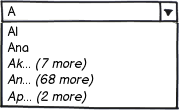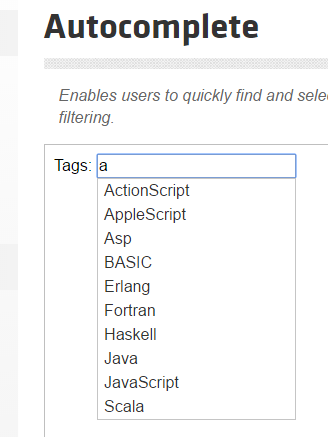Our application provides a way for administrators to authenticate as a specific user.
It provides a text field to type a username you want to authenticate.
When you type 4 letters or more
- the autocomplete list appears with a list of matching users you can authenticate.
- the Login button becomes enabled
Unfortunately, there also users with shorter usernames (of 3 or less characters). So when you type "patrizio", you will see autocomplete list with "patrizio", but when you know a user al and you type "al" you will not see him on the list.
Doesn't that give people a false impression that there is no user "al" in the database?
-EDIT-
A solution would be perhaps to:
- for 1 letter typed show only matching 1 letter-long usernames,
- for 2 letters typed show only matching 2 letter-long usernames,
- for 3 letters typed show only matching 3 letter-long usernames,
- for 4 letters or more typed show matching 4 letters-long or longers usernames





for 2 letters typed show only matching 2 letter-long usernames,. I wonder how many 2 letter-long usernames containing "al" there are... hint: it's either 0 or 1. same for your 1 and 3 letter-long examples, for any arbitrary string. Either they exist or they don't, "matching usernameS" makes no sense (except if it's case-sensitive) :P